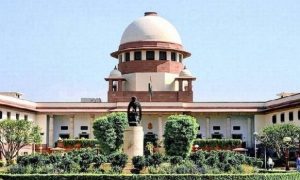CGHS set for revamp: The Centre is preparing a major reform plan for the Central Government Health Scheme (CGHS) ahead of the new government taking charge next month. The cabinet secretary has been holding discussions with various ministries and departments over the past few weeks to address problems with the CGHS.
According to an ET report by Anubhuti Vishnoi, these issues include strained partnerships with private hospitals due to pending dues, a complicated referral system, a shortage of doctors and healthcare staff, and concerns about linking CGHS cards with the digital Ayushman Bharat Health Account (ABHA) cards.
A committee of secretaries is addressing these issues. The main focus is on reducing red tape and backlog by simplifying the process. The government plans to introduce minimal scrutiny for transactions below Rs 10,000, while ensuring thorough verification for transactions above Rs 10,000, the financial daily said.
The CGHS serves over 4.5 million people, providing cashless healthcare to serving and retired central government employees, their dependents, and other beneficiaries at government and private hospitals. As of February, CGHS has empanelled 1,735 private hospitals and 209 laboratories nationwide for investigations and inpatient treatment.
Despite its broad reach, many private hospitals are hesitant to participate in the scheme due to the lack of updates in procedure and diagnosis rates since 2014. This, combined with significant delays in settling dues, has severely impacted the effectiveness and treatment capabilities of the scheme. Government assessments highlight a growing number of pending bills, primarily consisting of low-value transactions, the report said.
Read More: Byju’s crisis: Rajnish Kumar, Mohandas Pai to step down from advisory board
An official said that overall, low-value transactions are significantly slowing down the settlement process, despite accounting for only about 10% of the total billing value.
Rough assessments suggest that in the past two years, bills totaling Rs 1.5 crore were raised for settlement with the government. An analysis revealed that bills amounting to Rs 95 lakh were for transactions well below Rs 10,000.
The official further added that as a result, a significant amount of bureaucratic effort is wasted on processing and verifying bills ranging from Rs 500 to Rs 1,000. This doesn’t achieve much but instead clogs the system and delays settling dues. This also affects the scrutiny of high-value transactions. The aim is to fix this by clearly categorizing transactions, making it easier to process low-value ones automatically.
In a parliamentary committee report on February 8 regarding the CGHS’s operation, the Health Ministry highlighted the “huge liabilities of pending bills.” It noted that CGHS authorities nationwide receive bills totaling Rs 10-12 crore per day.
The panel observed in its report that many bills due for payment are carried over to the next financial year due to various reasons, which is “affecting the credibility of CGHS”.
The report stated that it is one of the major reasons for refusal of treatment to CGHS beneficiaries by some of the empanelled hospitals. The committee also noted that the empanelled hospitals are experiencing financial distress due to outstanding dues from CGHS. Therefore, the committee recommends that the ministry establish a mechanism for daily review of pending bills to ensure smoother processing and seamless disbursements. Additionally, the ministry should set a turnaround time for the settlement of bills.
The panel also highlighted how rates for treatment or diagnosis under CGHS are significantly lower compared to the prevailing rates of hospitals in general.
The report mentioned that besides delays in bill settlement, the low rates for procedures are a significant reason why some empaneled hospitals hesitate to treat CGHS beneficiaries. The committee discovered that many empanelled healthcare organizations (HCOs) are less interested in renewing or extending their empanelment agreements due to these reasons. The committee emphasized that CGHS beneficiaries should not face unnecessary delays in bill settlement or rate revisions by the government.





































